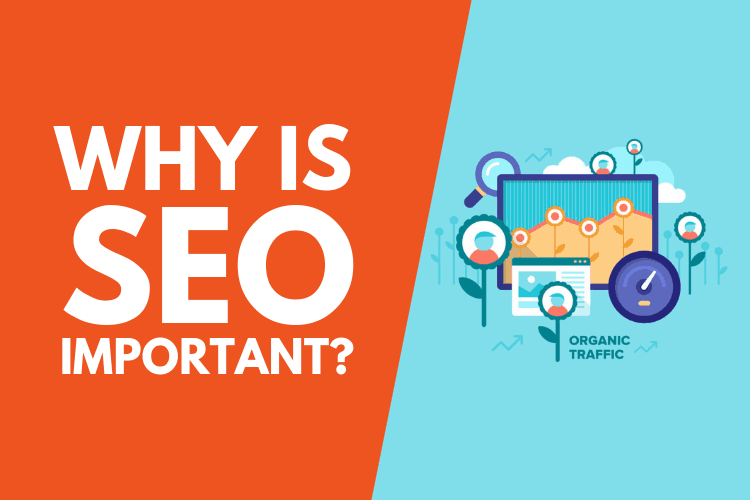In an increasingly digital world, Search Engine Optimization (SEO) has emerged as a pivotal strategy for online success. SEO involves a set of practices aimed at enhancing a website’s visibility in search engine results. By optimizing various elements, businesses and content creators improve their chances of ranking higher on search engine result pages (SERPs).
Importance of Keywords:
Keywords are the foundation of SEO. Understanding the phrases and terms your audience uses when searching is crucial. They guide content creation, ensuring it resonates with what users are looking for.
Value Proposition:
SEO’s importance lies in its ability to direct organic, highly-targeted traffic to websites. When effectively implemented, it not only improves visibility but also enhances brand credibility and, ultimately, leads to increased conversions.

Boosting Visibility
Enhancing online visibility through SEO involves multifaceted approaches.
The Role of SEO in Visibility:
SEO is a strategic tool that enables websites to rank higher in search results. By aligning content with search intent and employing relevant keywords, businesses increase their chances of being discovered by their target audience.
Significance of Keyword Research:
Keyword research is the compass of SEO. It involves identifying and implementing relevant search terms that users commonly use. It helps in tailoring content to meet users’ search intent, making the website more discoverable.
Content Optimization:
Optimizing content involves not only using keywords but also ensuring high-quality, valuable, and engaging material. Websites that provide content matching user intent tend to rank higher.
Driving Targeted Traffic
SEO plays a pivotal role in steering the right audience to your website.
Targeting Specific Traffic:
The beauty of SEO is its ability to channel highly targeted traffic to websites. By aligning content with the queries users make, businesses attract those actively seeking their products or information.
On-Page and Off-Page SEO:
On-page SEO involves optimizing content, titles, and meta descriptions. Off-page SEO involves backlinks, social media shares, and other external factors that impact search ranking.
Leveraging Backlinks:
Backlinks are a crucial off-page SEO element. Quality backlinks from authoritative sites enhance a website’s credibility and improve its ranking.
Staying Ahead in the Digital Sphere
Competitive Advantage through SEO:
SEO is not just about reaching the top of search results; it’s about staying there. Websites that consistently optimize their content and stay updated with SEO trends often outrank competitors.
Staying Updated:
The digital landscape is dynamic, and search engine algorithms frequently change. Adapting to these changes and staying informed about the latest SEO trends is crucial to maintain relevance and visibility.
Importance of Local SEO:
For businesses targeting a specific geographic area, local SEO is a game-changer. Optimizing for local searches enhances visibility among local audiences, making it easier for potential customers to find and engage with the business.
Mobile Optimization:
As more users access the internet via mobile devices, optimizing websites for mobile is imperative. Mobile-friendly sites tend to rank higher in mobile searches.
Measuring Success and ROI
Tools for Tracking SEO Performance:
Various tools, such as Google Analytics, SEMrush, and Moz, help measure and track SEO performance. They provide valuable insights into website traffic, keyword rankings, and user behavior.
Key Metrics for Success:
Metrics like organic traffic, keyword rankings, bounce rates, and conversion rates indicate the effectiveness of SEO efforts. Understanding and analyzing these metrics are crucial for gauging success.
Understanding ROI:
Determining the Return on Investment (ROI) from SEO campaigns involves analyzing the impact of increased traffic and conversions on the bottom line. It provides insight into the profitability of SEO strategies.
Adapting Strategies:
Analytical insights from tracking tools allow businesses to adapt their SEO strategies. Data-driven decision-making ensures continuous improvement in SEO efforts.
Staying Ahead in the Digital Sphere
Competitive Advantage through SEO:
SEO provides a substantial competitive advantage. Continuously optimizing content, staying updated with the latest SEO trends, and adhering to best practices put businesses in a favorable position to outrank competitors in search results.
Staying Updated:
Adapting to the dynamic nature of the digital sphere is crucial. Search engine algorithms frequently change, and staying informed about these changes and implementing necessary adjustments ensure sustained relevance and visibility.
Importance of Local SEO:
Local SEO significantly benefits businesses catering to specific geographic areas. Optimizing for local searches ensures higher visibility among local audiences, facilitating easier engagement with potential customers.
Mobile Optimization:
Given the increasing use of mobile devices, ensuring websites are mobile-friendly is essential. Search engines prioritize mobile-optimized sites in mobile search results, making this optimization pivotal.
Measuring Success and ROI
Tools for Tracking SEO Performance:
Tools such as Google Analytics, SEMrush, and Ahrefs provide insightful data to measure and track SEO performance. They offer valuable information about website traffic, keyword rankings, and user behavior.
Key Metrics for Success:
Metrics like organic traffic, keyword rankings, bounce rates, and conversion rates are pivotal in determining the effectiveness of SEO efforts. Analyzing and understanding these metrics are vital for evaluating success.
Understanding ROI:
Determining the Return on Investment (ROI) from SEO campaigns involves analyzing increased traffic and conversions and their impact on the bottom line. Understanding the profitability of SEO strategies is key.
Adapting Strategies:
Analyzing data from tracking tools allows businesses to adapt their SEO strategies. Making data-driven decisions ensures continual improvement in SEO efforts and better outcomes.
FAQs Section
1. What are the primary components of SEO strategies?
The primary components include keyword research, content optimization, technical SEO, on-page and off-page optimization, and link building.
2. How long does it take to see results from SEO efforts?
SEO results vary, but noticeable improvements might take several months. Consistent and strategic efforts, however, often lead to long-term benefits.
3. Why is link building important in SEO?
Link building establishes a website’s credibility and authority. High-quality backlinks from reputable sites bolster search engine trust in a site’s content.
4. What are the best practices for optimizing content for search engines?
Crafting high-quality, relevant content, using appropriate keywords, optimizing meta tags, and ensuring a user-friendly experience are essential practices.
5. How crucial is local SEO for small businesses?
Local SEO is highly advantageous for small businesses as it aids in targeting local audiences, enhancing visibility, and effectively competing within their region.




